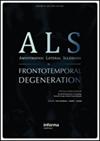Radicava(依达拉奉)治疗肌萎缩侧索硬化症:美国上市后1年的经验
IF 2.8
4区 医学
Q2 CLINICAL NEUROLOGY
Amyotrophic Lateral Sclerosis and Frontotemporal Degeneration
Pub Date : 2019-07-31
DOI:10.1080/21678421.2019.1645858
引用次数: 34
摘要
摘要背景:Radicava®(依达拉奉)于2017年被批准用于治疗肌萎缩侧索硬化症(ALS),可在诊所、输液中心或家中静脉注射。目的:深入了解Radicava®在上市后1年的使用情况。方法:收集Radicava®的使用数据,并对75名医生进行调查。不良事件(AE)是从2017年8月8日至2018年8月3日(截止日期)的上市后安全性数据库中确定的。结果:截至2018年8月6日,3007名ALS患者接受了Radicava®治疗。调查结果显示,43%的患者在家接受输液,32%在临床医生办公室接受输液,26%在转诊点接受输液。输液主要通过植入口进行。最常见的不良事件包括药物无效、死亡(未具体说明)、意外治疗反应、乏力、疲劳、步态障碍、疾病进展、肌无力、跌倒和呼吸困难。结论:Radicava®在美国向ALS患者提供的第一年提供了许多关键知识,这些知识将有助于制定改善患者护理的策略。本文章由计算机程序翻译,如有差异,请以英文原文为准。
Radicava (edaravone) for amyotrophic lateral sclerosis: US experience at 1 year after launch
Abstract Background: Radicava® (edaravone), approved for the treatment of amyotrophic lateral sclerosis (ALS) in 2017, may be administered intravenously at clinic sites, infusion centers or at home. Objective: To gain insights into the utilization of Radicava® at 1 year post-launch. Methods: Radicava® usage data were collected, and a survey was conducted among 75 physicians. Adverse events (AEs) were identified from a post-marketing safety database from 8 August 2017 through 3 August 2018 (cutoff date). Results: As of 6 August 2018, 3007 ALS patients were treated with Radicava®. Survey results indicated that 43% of patients received infusions at home, 32% in a clinician’s office, and 26% at a referred site. Infusions were administered mainly via implanted port. The most commonly reported AEs were drug ineffective, death (not specified), therapeutic response unexpected, asthenia, fatigue, gait disturbance, disease progression, muscular weakness, fall, and dyspnea. Conclusions: The first year of Radicava® availability to ALS patients in the US provided many key learnings that will help shape strategies for improved patient care.
求助全文
通过发布文献求助,成功后即可免费获取论文全文。
去求助
来源期刊

Amyotrophic Lateral Sclerosis and Frontotemporal Degeneration
CLINICAL NEUROLOGY-
CiteScore
5.40
自引率
10.70%
发文量
64
期刊介绍:
Amyotrophic Lateral Sclerosis and Frontotemporal Degeneration is an exciting new initiative. It represents a timely expansion of the journal Amyotrophic Lateral Sclerosis in response to the clinical, imaging pathological and genetic overlap between ALS and frontotemporal dementia. The expanded journal provides outstanding coverage of research in a wide range of issues related to motor neuron diseases, especially ALS (Lou Gehrig’s disease) and cognitive decline associated with frontotemporal degeneration. The journal also covers related disorders of the neuroaxis when relevant to these core conditions.
 求助内容:
求助内容: 应助结果提醒方式:
应助结果提醒方式:


